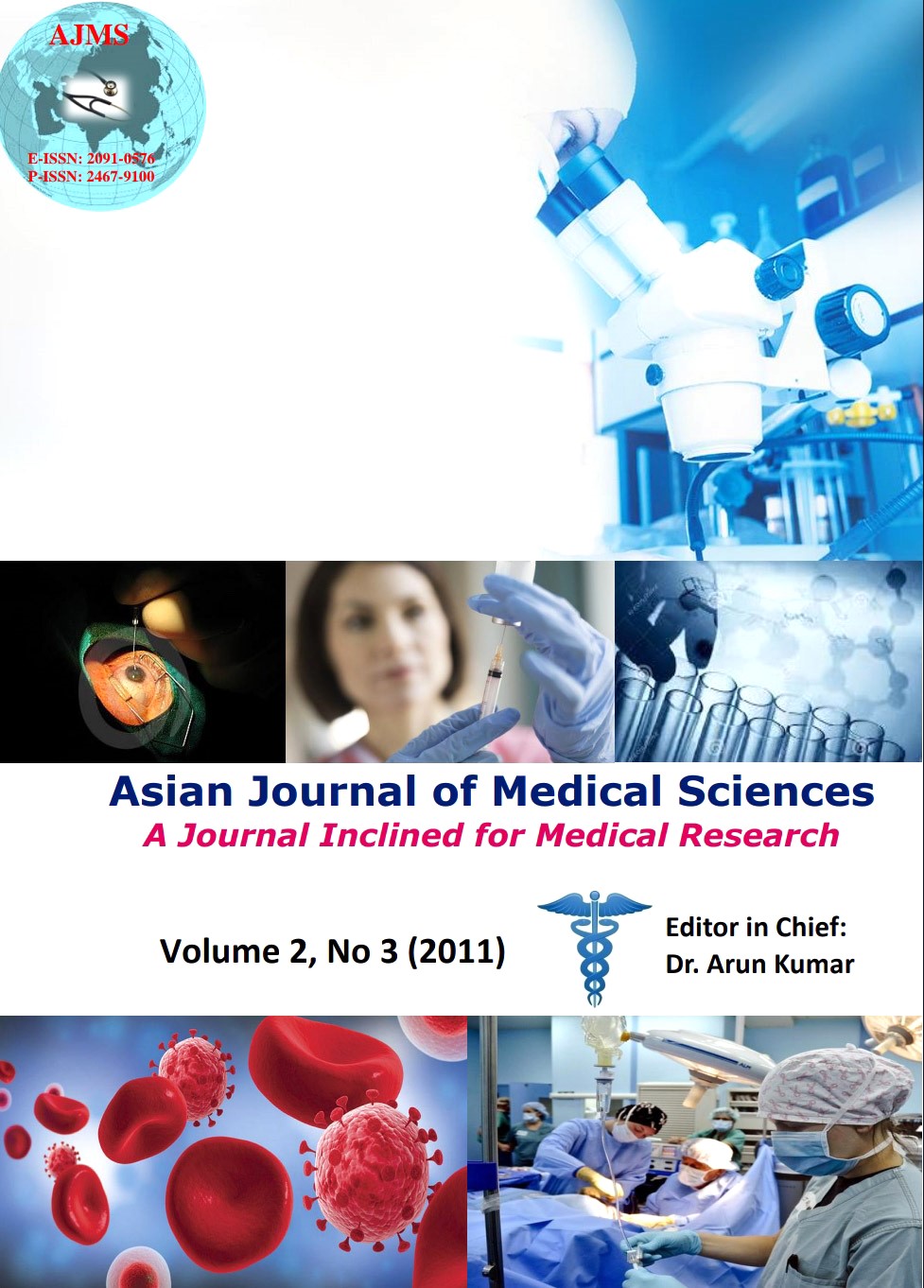Frequency of Type 2 Diabetes mellitus and Impaired Glycemia in a Teaching Hospital of South-Western Nepal
Keywords:
Frequency, Type 2 Diabetes, Impaired Fasting Glucose, Impaired Glucose Tolerance, UCMSTH, South-western NepalAbstract
Objective: The aim of this study was to determine the frequency of type 2 diabetes, impaired fasting glucose (IFG) and impaired glucose tolerance (IGT) among patients visiting a tertiary level teaching hospital in south-western Nepal.
Material & Methods: This is a retrospective study conducted among subjects (n=17082) who visited outpatient department of the Universal College of Medical Sciences Teaching Hospital (UCMSTH), Bhairahawa, Nepal for their medical checkup. Data related to age, sex, hospital number and blood glucose concentration of the study subjects were collected from hospital records and analyzed for the frequency study.
Results: The average frequency of type 2 diabetes was found to be 6.1% over a period of five years and it was significantly (p=0.0232) higher in males (3.4%) than in females (2.8%). Frequency of IFG and IGT were found to be 2.31% and 2.70% respectively. The frequency of type 2 diabetes, IFG and IGT was significantly higher in males and age group of 51-60 years.
Conclusion: The frequency of type 2 diabetes and impaired glycemia is increasing every year in south-western part of Nepal. We recommend that efforts be made by all the stakeholders to curb this emerging medical problem before it becomes epidemic in the general population.
DOI: http://dx.doi.org/10.3126/ajms.v2i3.5485
Asian Journal of Medical Sciences 2 (2011) 202-206
Downloads
Downloads
Published
How to Cite
Issue
Section
License
Authors who publish with this journal agree to the following terms:
- The journal holds copyright and publishes the work under a Creative Commons CC-BY-NC license that permits use, distribution and reprduction in any medium, provided the original work is properly cited and is not used for commercial purposes. The journal should be recognised as the original publisher of this work.
- Authors are able to enter into separate, additional contractual arrangements for the non-exclusive distribution of the journal's published version of the work (e.g., post it to an institutional repository or publish it in a book), with an acknowledgement of its initial publication in this journal.
- Authors are permitted and encouraged to post their work online (e.g., in institutional repositories or on their website) prior to and during the submission process, as it can lead to productive exchanges, as well as earlier and greater citation of published work (See The Effect of Open Access).




